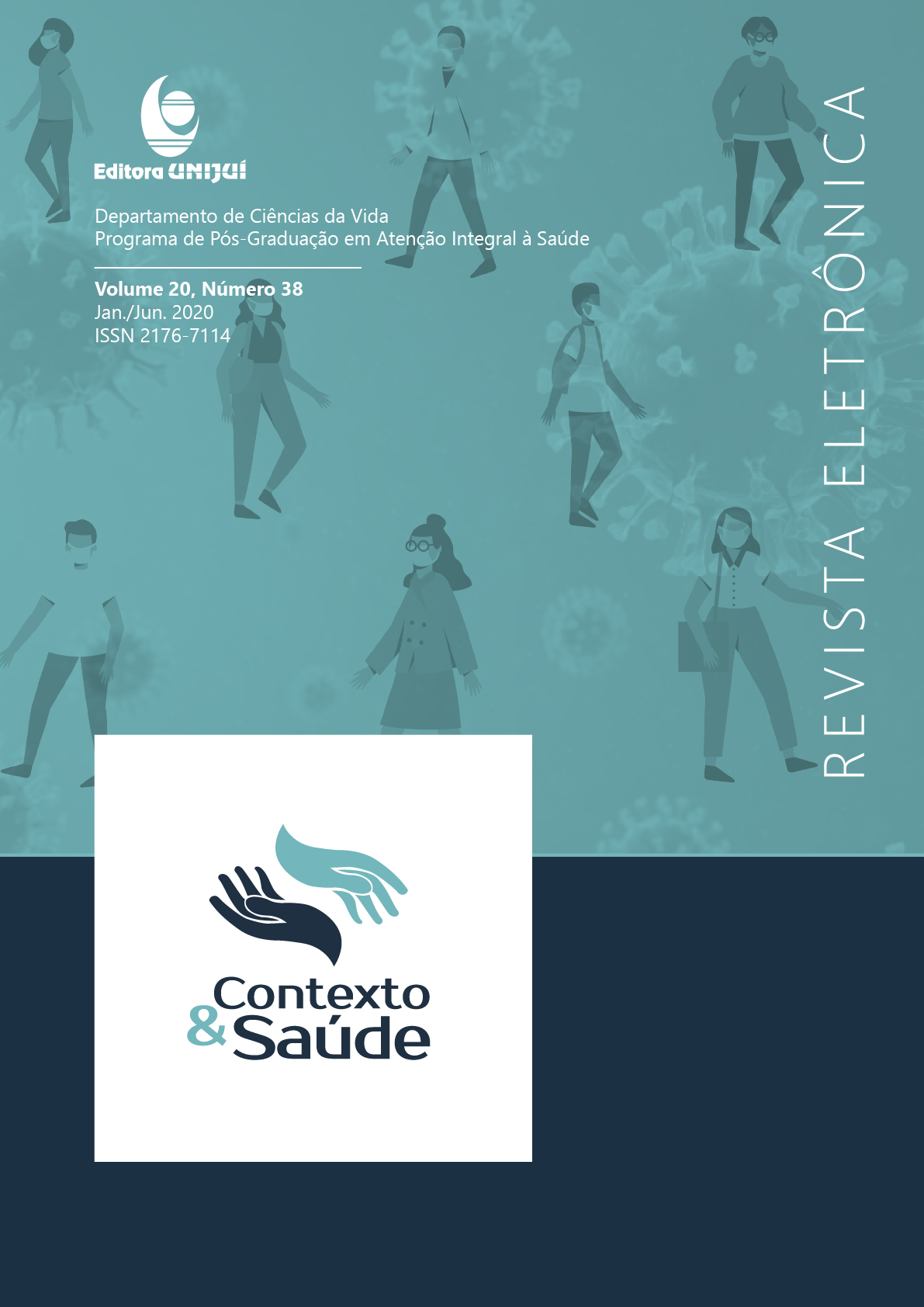DEVELOPMENT OF CHILDREN AND TEENAGERS WITH SPECIAL HEALTH NEEDS
DOI:
https://doi.org/10.21527/2176-7114.2020.38.185-190Keywords:
Saúde da Criança;, Saúde do Adolescente;, Família;, Cuidadores;, Crescimento e desenvolvimento;Abstract
Objective: to describe the participation of family members in clinical care and school monitoring of children and adolescents with special needs (CRIANES) from the perspective of health and education professionals from the Association of Parents and Friends of Exceptional People (APAE). Method: qualitative study, participatory type, where the production of data occurred through the development of the dynamics of creativity and sensitivity in the life line. Ten health and education professionals from the clinic and school participated in the dynamic, where the production took place through the metaphor of a clothesline that represented the life line of each professional in the face of the question that generates debate. The productions were phrases and drawings built individually and socialized in groups. The statements were audio recorded, transcribed and subjected to discourse analysis in the French current. Results: the productions and speeches highlighted the importance of the participation of families in favor of the development of the skills of children and adolescents and that the impact is positive even in adherence to treatment and care at home. Conclusion: health and education professionals realize the importance of the work they do with CRIANES. For them, the development process, the acquisition of skills and adherence to treatment will only be satisfactory with the collective efforts of the family, clinic and school in favor of the health and education of the CSHCN.
Downloads
Published
How to Cite
Issue
Section
License
By publishing in Revista Contexto & Saúde, authors agree to the following terms:
The works are licensed under the Creative Commons Atribuição 4.0 Internacional (CC BY 4.0) license, which allows:
Share — to copy and redistribute the material in any medium or format;
Adapt — to remix, transform, and build upon the material for any purpose, including commercial.
These permissions are irrevocable, provided that the following terms are respected:
Attribution — authors must be properly credited, with a link to the license and indication of any changes made.
No additional restrictions — no legal or technological measures may be applied that restrict the use permitted by the license.
Notes:
The license does not apply to elements in the public domain or covered by legal exceptions.
The license does not grant all rights necessary for specific uses (e.g., image rights, privacy, or moral rights).
The journal is not responsible for opinions expressed in the articles, which are the sole responsibility of the authors. The Editor, with the support of the Editorial Board, reserves the right to suggest or request modifications when necessary.
Only original scientific articles presenting research results of interest that have not been published or simultaneously submitted to another journal with the same objective will be accepted.
Mentions of trademarks or specific products are intended solely for identification purposes, without any promotional association by the authors or the journal.
License Agreement (for articles published from September 2025): Authors retain copyright over their article and grant Revista Contexto & Saúde the right of first publication.

